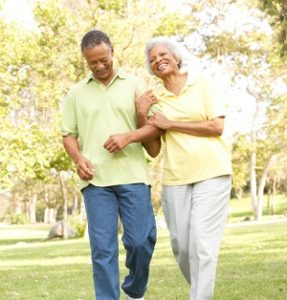 Did you know that one out of three individuals 65 and older falls each year? Sadly, fewer than half report these issues to their doctor. Falls can result in life threatening injury and serious illness. Even worse, patients can become frightened after a fall causing reduced self-confidence and reduced activity. Once an elderly person has fallen, they are likely to fall again.
Did you know that one out of three individuals 65 and older falls each year? Sadly, fewer than half report these issues to their doctor. Falls can result in life threatening injury and serious illness. Even worse, patients can become frightened after a fall causing reduced self-confidence and reduced activity. Once an elderly person has fallen, they are likely to fall again.
Let’s look at some facts from the Centers for Disease Control and Prevention:
- Of the 2.5 million older individuals seen in the emergency room for falls each year, more than 700,000 are admitted to the hospital for serious injury.
- One out of five falls results in a serious head injury or broken bones.
- Falls are the most common cause of traumatic brain injury. Persons who are taking blood thinners, even aspirin, are at very serious risk for an adverse event.
- More than 95 percent of hip fractures are caused by falls. Other common fractures from falls include wrists, arms, and ankles.
Many conditions put older individuals at risk for falls and many times they are caused by a combination of circumstances. As we age, balance and gait dysfunction are very important factors. Generalized deconditioning from living a sedentary lifestyle can result in lower body weakness, which can increase the risk of falling. Medications including pain medications, tranquilizers, and antidepressants may play a role. Patients on blood pressure medications may also experience dizziness upon change in body position which can affect balance. Poor footwear and pain in the lower body is also of concern. Vision problems may cause loss of depth perception. In addition, the environment may not be safe with uneven surfaces, cords, rugs, and slippery surfaces.
Visit your doctor to see what you can do to reduce your fall risk. Review medications to see if you may be able to come off those that bring on dizziness, and don’t forget to mention over-the-counter medications.
Exercise as often as you can, including physical therapy if your doctor deems it appropriate. In particular, engage in muscle strengthening and balance exercises. Ask your doctor if you are getting enough vitamin D. A simple blood test can help determine if you are vitamin D deficient. Keep up with routine eye exams, and update your eyeglasses if necessary. Lastly, consider adding grab bars around shower stalls, tubs, and toilets, along with railings. Make sure your home is free of hazards that you can trip over. Keep living areas well-lit and clutter free. Purchase sensible footwear that is comfortable and well fitting.
With a little help from your health care team, you can reduce your fall risk and live independently longer.
Learn more about Cooper’s Fall Prevention Program here.
